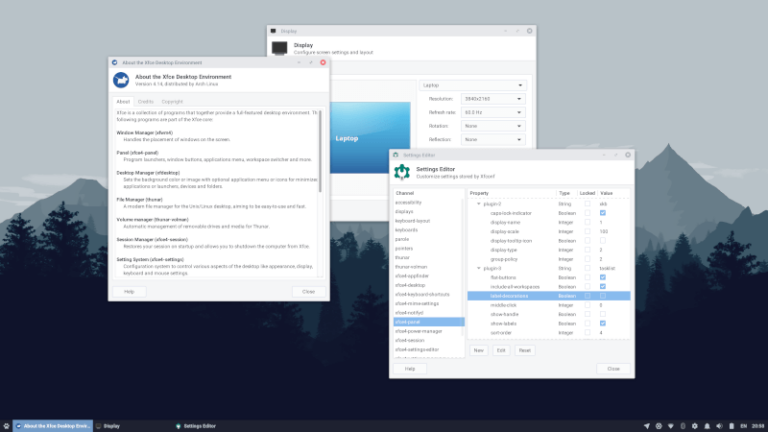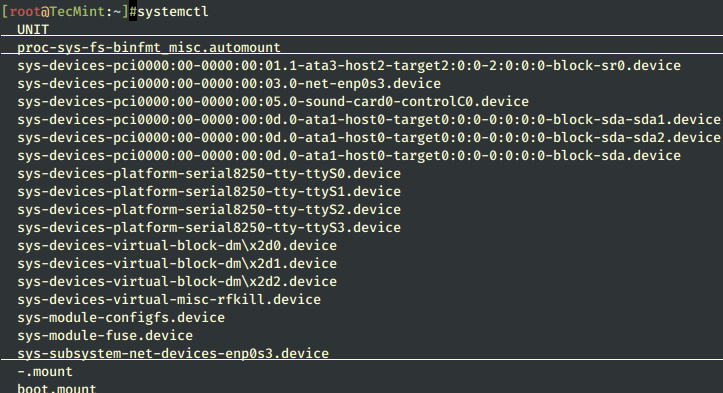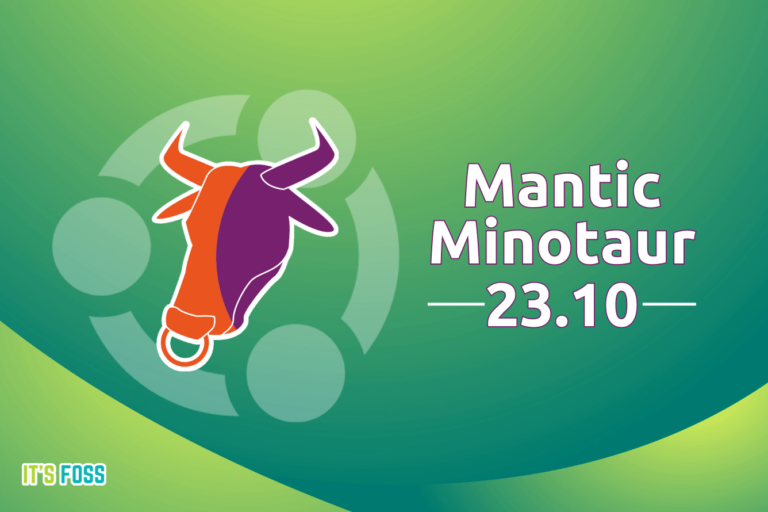11 Best GitHub Alternatives for Open Source Projects in 2023
Github is a powerful, secure, and the most popular online platform for hosting software projects for version control using Git. It is particularly well known as a development platform for open-source projects, however, Github supports private repositories as well.
Since Microsoft acquired GitHub, many open source enthusiasts are probably weary of this acquisition, knowing very well that Microsoft is a for-profit company, and who knows terms and conditions are bound to change (as is always the case with such deals) concerning the world’s leading software development platform.
If you are one of those already thinking of alternatives to Github for hosting your open-source project(s), then check out the list below.
1. GitLab
Gitlab is an open source, powerful, secure, efficient, feature-rich, and robust application for handling software development and operations (DevOps) lifecycle.
This is possibly the number one alternative for Github, as it supports group milestones, issue tracker, configurable issue boards and group issues, moving of issues between projects, and more.
It also supports time tracking, powerful branching tools and protected branches and tags, file locking, merge requests, custom notifications, project roadmaps, issues weights, confidential and related issues, and burndown charts for project and group milestones.
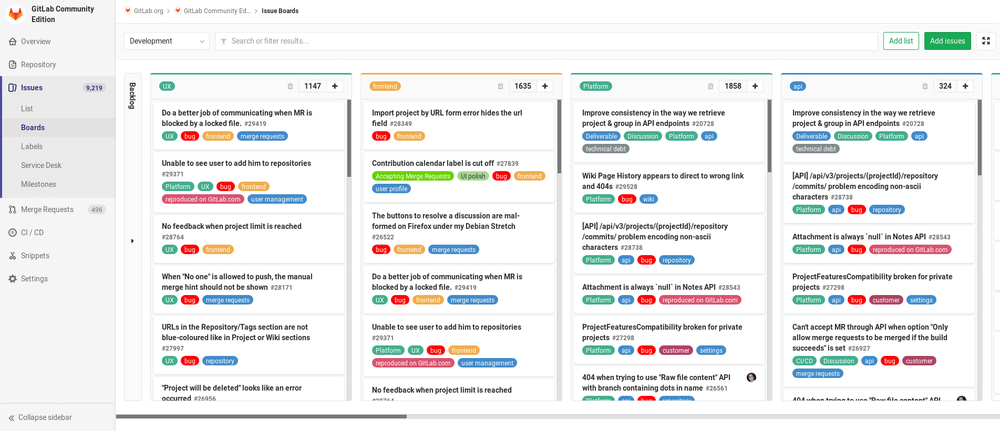
In addition, you can perform matter-most integrations, create issue(s) from email, and preview your changes with review apps. GitLab also provides a Web IDE, and multiple project templates for you to get started with a project, and so much more.
You can self-host Gitlab on your Linux or use hosted services at a price. Using the importer, you can import your GitHub repositories to GitLab or to your self-hosted GitLab instance.
Gitlab is being used by Stack Overflow, IBM, AT&T, Microsoft, and more.
2. Bitbucket
Bitbucket is a powerful, fully scalable, and high-performance development platform designed for professional teams. Education users and open-source projects get free Bitbucket accounts and many other features.
You can easily import your GitHub repositories to Bitbucket in 6 simple steps and support third-party integrations. It has remarkable features such as Bitbucket pipelines, code search, pull requests, flexible deployment models, diff view, smart mirroring, issue tracking, IP whitelisting, and branch permissions for safeguarding your workflow.
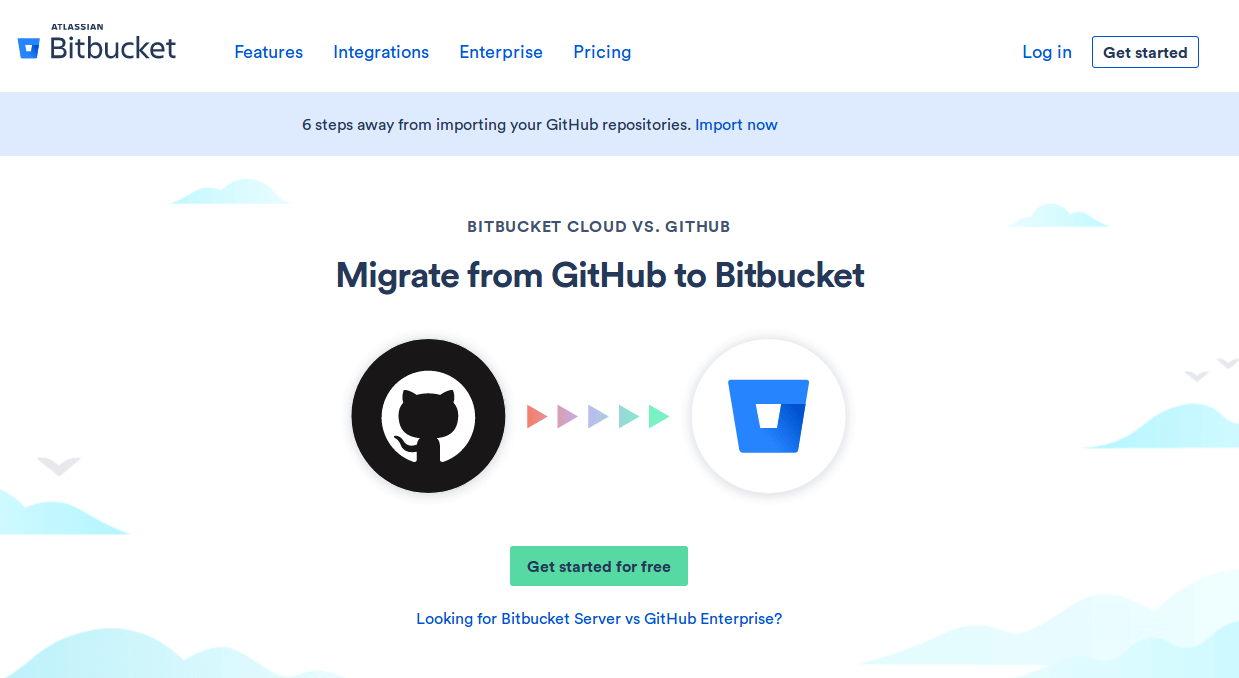
Bitbucket also offers amazing support for Git Large File Storage (LFS) for game development. It allows an unlimited number of private repositories, seamlessly integrates into your existing workflow, and has built-in continuous delivery.
Bitbucket is being used by companies such as BBC Worldwide, Alibaba, AVG, Avast, Blackberry, and many more.
3. Beanstalk
Beanstalk is a powerful, secure, high-performance, and reliable platform for managing source code repositories.
Beanstalk is designed to improve your development workflow using features such as code review, issue tracker, repository statistics, release notes, notifications, email digests, compare view, a full history of commits and files, and so much more.
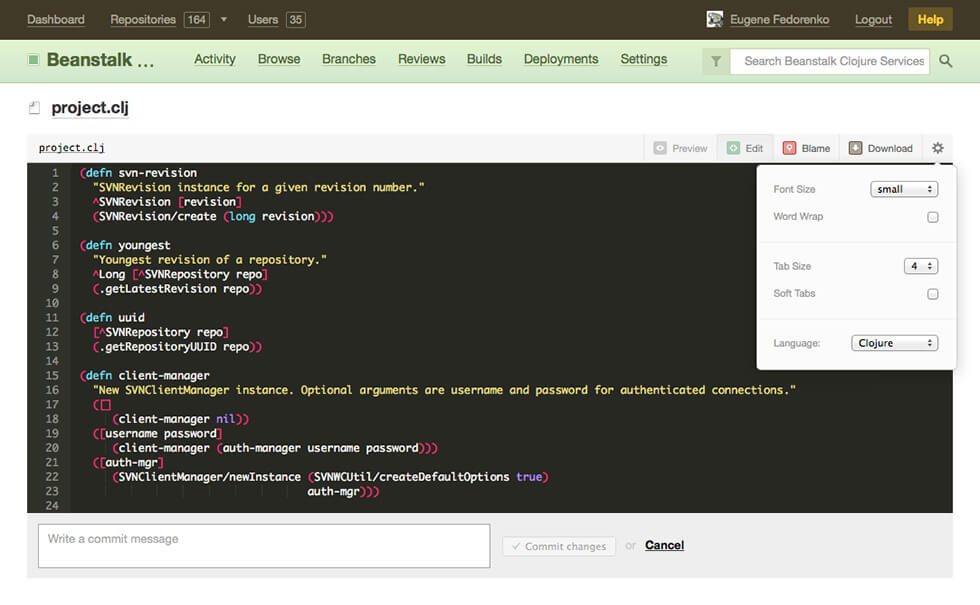
In Beanstalk, security is implemented via repository and branch-level permissions, and account security via two-step authentication, IP access records, enforcing strong passwords, and IP access restrictions. It supports deployment in multiple environments with custom configurations.
Companies such as Phillips, Intel, and many others, are making use of Beanstalk.
4. Launchpad
Launchpad is a fully free, well-known platform for building, managing, and collaborating on software projects, built by Canonical, the makers of Ubuntu Linux.
It has features such as code hosting, Ubuntu package building and hosting bug tracking, code reviews, mail listing, and specification tracking. Furthermore, Launchpad supports translations, answer tracking, and FAQs.
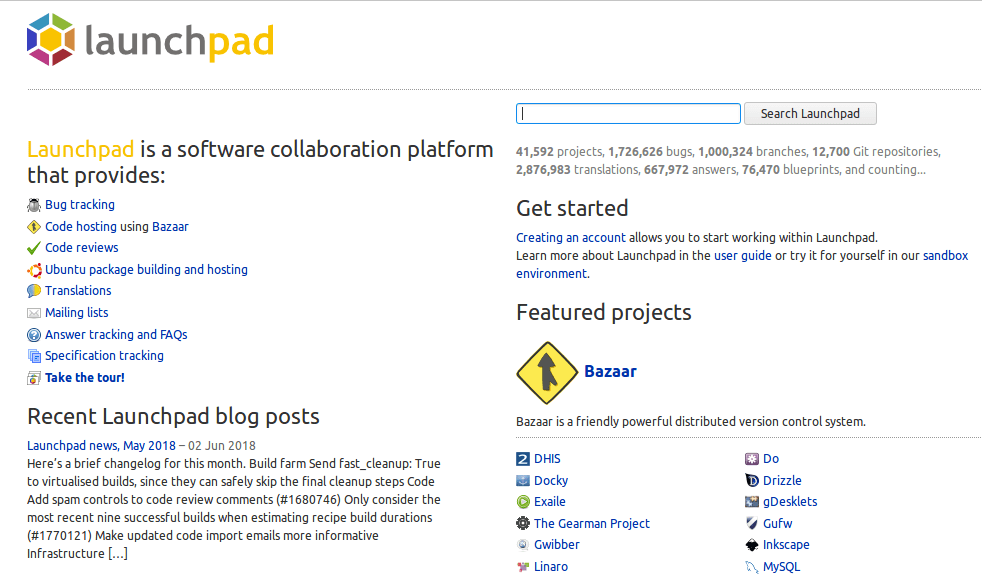
Some of the popular projects hosted on Launchpad include Ubuntu Linux, MySQL, OpenStack, Terminator, and more.
5. Sourceforge
Sourceforge is a free open-source software development and distribution platform built to specifically uplift open-source projects. It is hosted on Apache Allura and supports any number of individual projects.
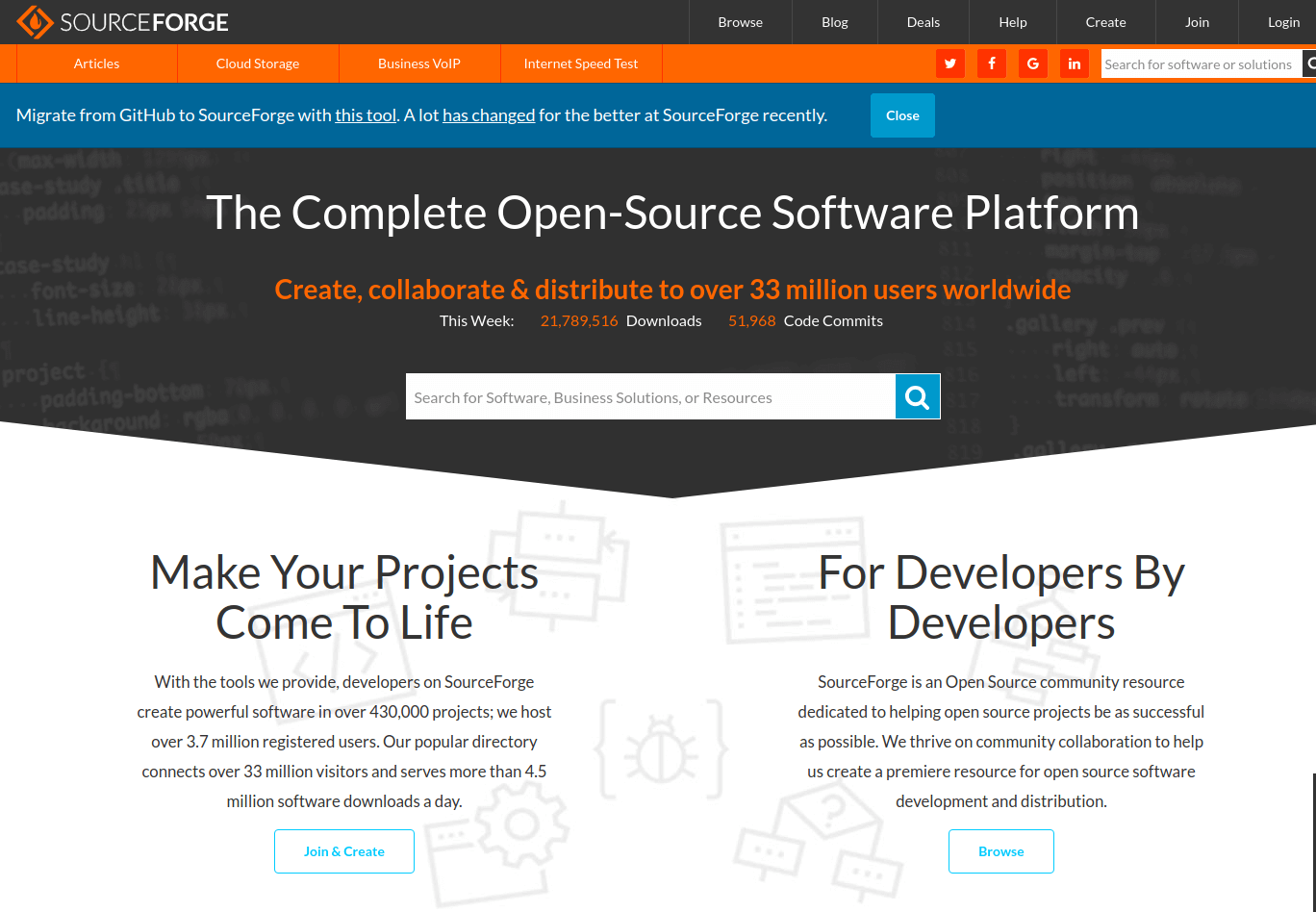
Sourceforge offers code repositories, open source directories, tools for integrated issue tracking, as well as project documentation. It also supports forums, blogs, and mailing lists.
Sourceforge is being used to host projects such as Apache OpenOffice, FileZilla, and lots more.
6. GitBucket
GitBucket is an open-source, highly pluggable Git platform that runs on JVM (Java Virtual Machine). It comes with features such as a repository viewer, issues tracker, pull requests, documentation, and wiki, as well as a plugin system to extend its core features.
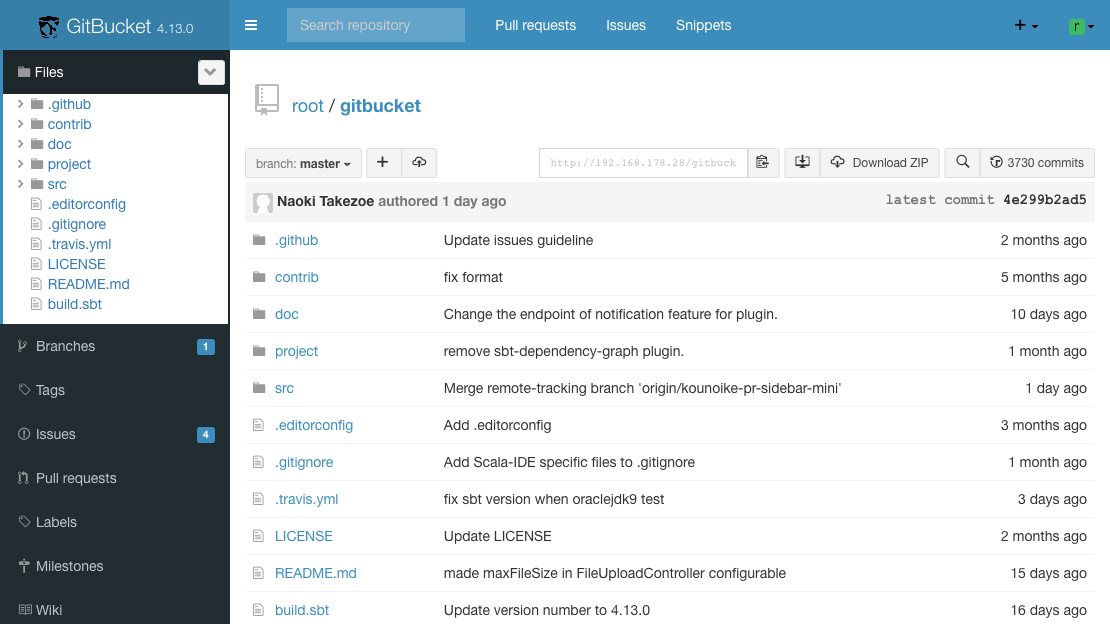
7. Gogs
Gogs is a free open-source, lightweight, extensible, and cross-platform self-hosted Git service that has minimal system requirements. It is easy to install, and tiny enough to run on a Raspberry Pi.
Gogs is probably the easiest and fastest way to set up your own self-hosted code hosting solution for your open-source project.
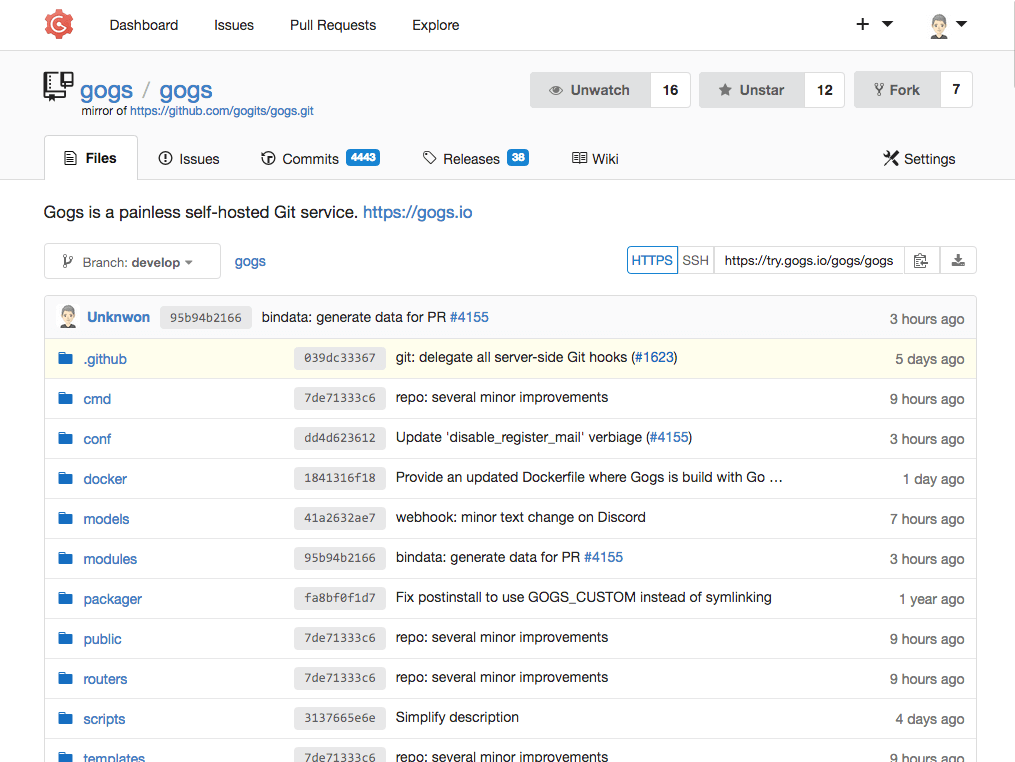
8. AWS CodeCommit
AWS CodeCommit is a reliable source control service designed to securely store Git-based repositories that facilitate collaborative coding within a secure and highly scalable environment, effectively removing the burden of maintaining your own source control system and worrying about infrastructure scaling.
CodeCommit provides a secure platform for storing a diverse array of data, spanning from source code to binaries, and offers seamless integration with your current Git tools.
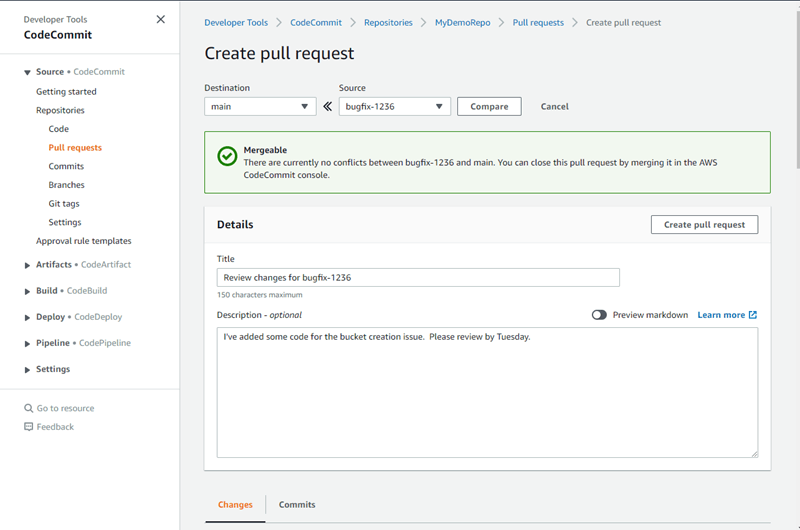
9. Google Cloud Source Repositories
Google Cloud Source Repositories is a powerful and secure platform for managing source code and facilitating collaborative software development by offering a robust solution for version control, allowing developers to store, track, and manage their code repositories efficiently.
Google Cloud Source Repositories are designed to integrate smoothly with popular version control systems like Git, enabling teams to work together on projects with ease by using robust access controls.
By providing a centralized and cloud-based repository, it simplifies code collaboration, and its scalability accommodates projects of all sizes, making it a perfect choice for modern software development teams.
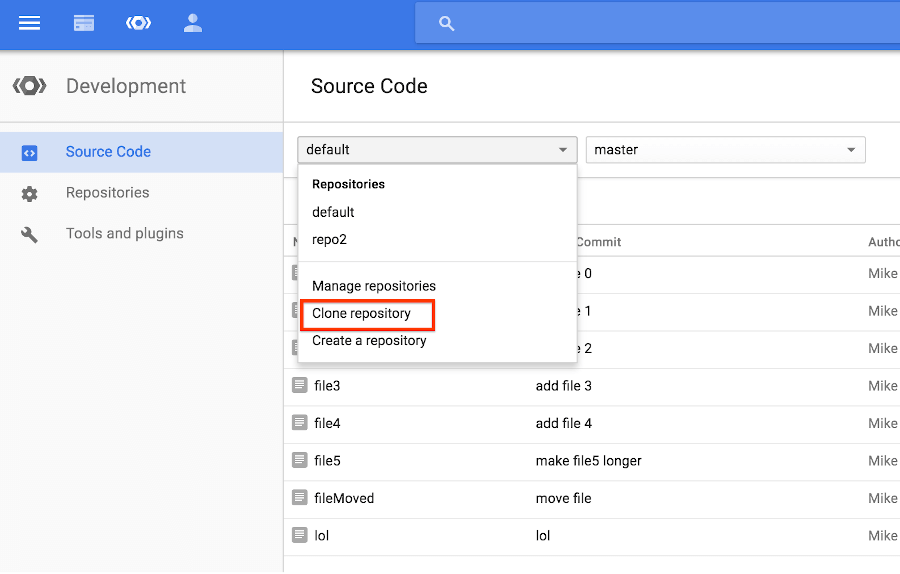
10. Gitea
Gitea is a free open source, easy-to-install, community-managed fork of Gogs. It is also a simple and fast method of setting up a self-hosted Git service for open-source software development.
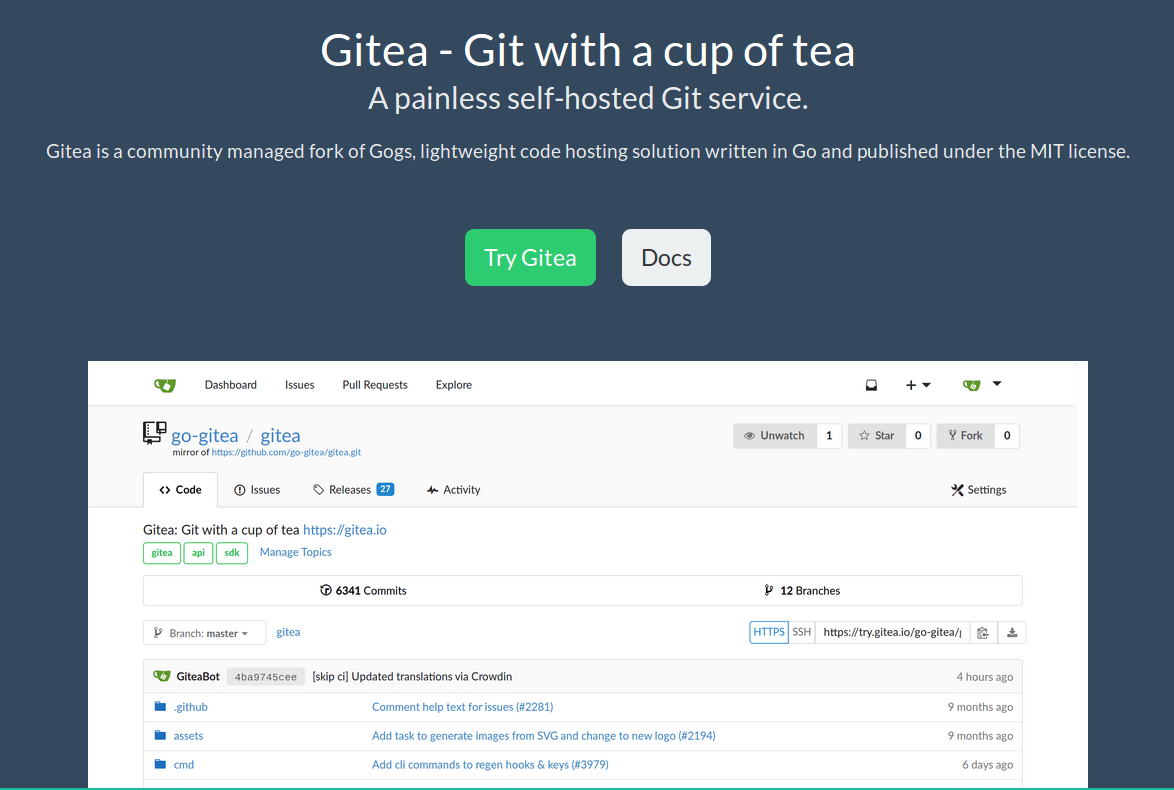
11. Apache Allura
Apache Allura is an open-source, flexible, extensible, and pluggable project hosting platform that was initially developed at SourceForge.
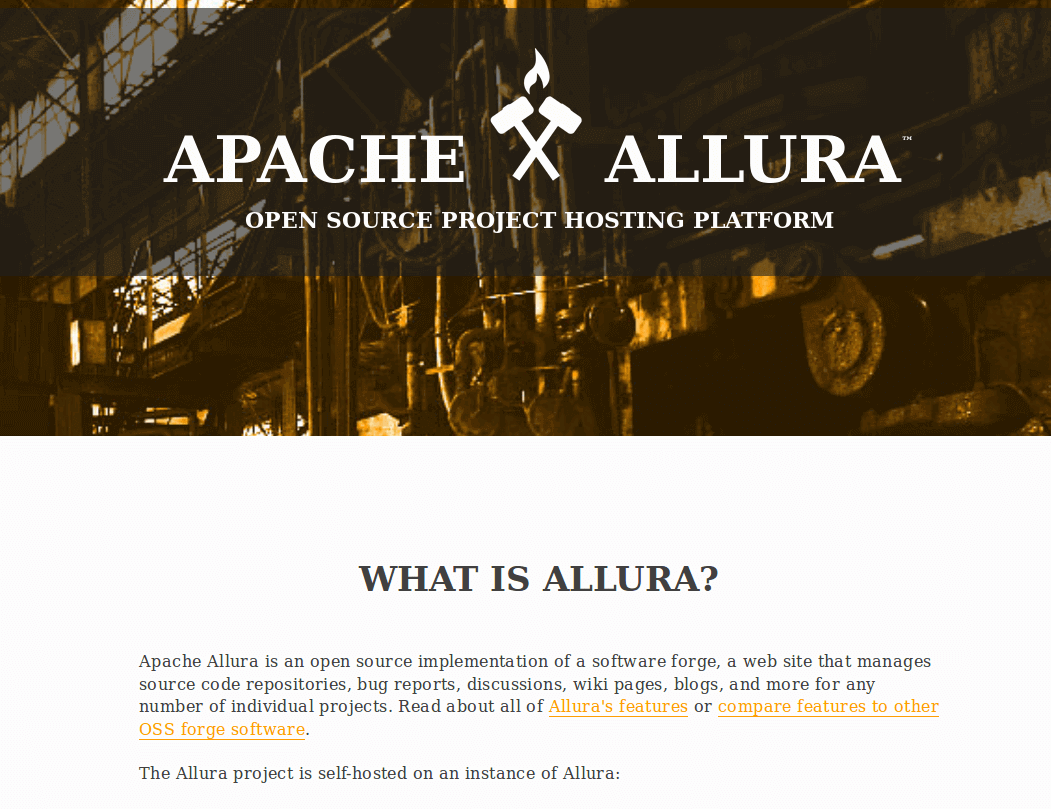
It provides a collection of tools to assist people in collaborating on software projects and has features such as issue tracking, powerful searching, syntax highlighting, forking and merge and pull requests, commit history graph view, threaded discussion forums, code repository, project documentation, and lots more. It is self-hosted on an instance of Allura.
Conclusion
That’s all for now! In this article, we have listed the 11 best alternatives to Github, for hosting your open source project(s). Share your thoughts about this list or let us know of any other software repository hosting platforms you are using out there, via the feedback form below.



